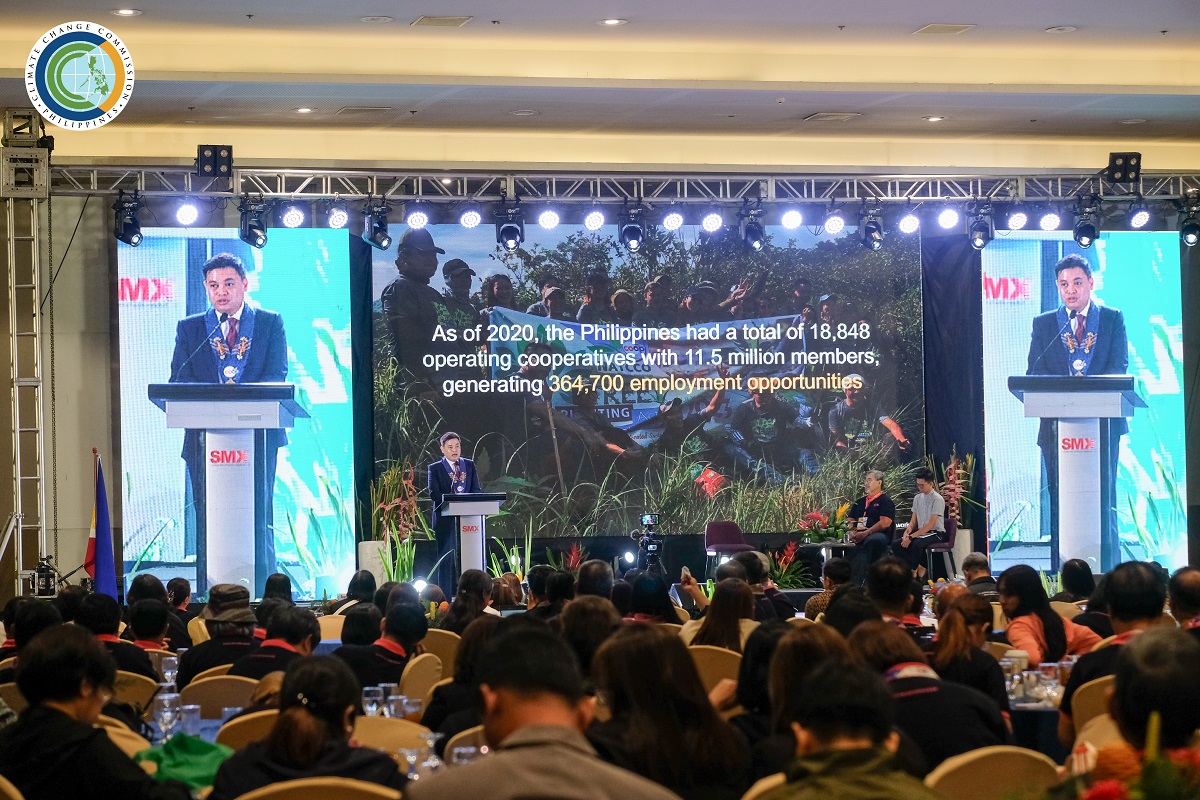
May 08, 2024 Wednesday

CCC Vice Chairperson and Executive Director Robert E.A. Borje discusses the integral role of Coops in attaining the country’s sustainability and climate goals during the 47th General Assembly and 22nd Leader’s Congress of NATCCO.
DAVAO CITY, 8 May 2024 — The Climate Change Commission highlighted the integral function of cooperatives in ushering sustainable development and attaining effective climate action in the country during the 47th General Assembly and 22nd Leaders’ Congress of the National Confederation of Cooperatives (NATCCO) held recently.
Secretary Robert E.A. Borje, CCC Vice Chairperson and Executive Director, emphasized the vital role of cooperatives during the second plenary session titled “Green Growth and Climate Resilience as a Path for Sustainability.”
“Cooperatives embody the spirit of bayanihan where people come together to help one another, to share resources, and work towards a common goal. It is also a creative approach to supporting people who need help. Strengthening the resilience of cooperatives enhances the resilience of our people, thereby fortifying the resilience of our entire nation,” said Borje.
“Local energy cooperatives can promote renewable sources, such as solar and wind, reducing fossil fuel dependence through shared resources. Agricultural cooperatives, on the other hand, aid sustainable farming, lowering carbon footprints and enhancing biodiversity. Meanwhile, transportation cooperatives advocate eco-friendly travel, cutting emissions and congestion. All of these foster local production for a resilient Philippine economy,” he further explained.
During the discussion, Borje amplified the ongoing efforts of the national government to achieve climate resilience and sustainable development across all sectors. He detailed the country’s overarching development and climate plans and frameworks such as the National Framework on Climate Change (NFCC), National Climate Change Adaptation Plan (NCCAP), and the draft National Adaptation Plan (NAP).
Borje emphasized the importance of the NAP in assisting cooperatives in identifying their assets and financial risks amid disasters and climate challenges. He delved into how our climate frameworks can effectively facilitate cooperative efforts to promote eco-friendly goods, services, technologies and practices to help protect Philippine ecosystems and biodiversity.
Moreover, Borje also highlighted the importance of reducing energy, materials, and water consumption through highly efficient strategies, transitioning to a low-carbon economy, and mitigating long-term waste and pollution.
NATCCO was established to supervise the coordination and provision of training and educational services at the national level and serve as a support mechanism for promoting social justice and economic development. This year, NATCCO’s assembly is focused on the theme “Building Trust, Climate Resilience and Sustainable Futures: Happy Members of Secured Co-ops in an Integrated Network.”
The CCC remains steadfast in its commitment to mainstreaming a whole-of-government and whole-of-society approach in developing the country’s strategies and plans for the climate crisis.
By engaging and involving the public, private, and cooperatives, the CCC aims to foster ecological and sustainable practices across a range of industries and contribute to the attainment of a climate smart and climate resilient Philippines.
For more information on the CCC’s climate mainstreaming activities, visit www.climate.gov.ph and www.facebook.com/CCCPhl.